Red Sparrow (alternate review)
By
Dieter
★★★½
“From Russia without love.”
So, I saw “Red Sparrow”. But I was hesitant. So hesitant, I actually pressed the button to get off the bus when I was still not so far away from my flat. But the door didn’t open; I interpreted that as force majeure and stayed until I reached the cinema.
First of all, this movie is not what it seems to be – or is marketed as. Which you could already sense; I mean, if you see a trailer for a 140 minute-movie and there is not the slightest indication of action, it could perhaps be guessed that it’s not really an action movie. And indeed, it’s not. If someone goes into the movie expecting a movie like Atomic Blonde, Unlocked, Salt or Haywire, he/she will likely be disappointed. The action early on is only with Joel Edgerton, not with Lawrence. And despite beating up a treacherous couple responsible for the end of her ballerina career, and an extended torture scene at the end that ends with a stabbing, Dominika is usually not involved.
This movie reminded me most of all of the American remake of The Girl with the Dragon Tattoo: long and drawn-out, but without the suspense. You have to have what we call in Germany “good seating-flesh” – you’re sitting a long time in the cinema! When the film ended, an old woman behind me who was there with her son and his wife whispered, “Schwere Kost, nicht wahr?”. That translates as “A heavy meal, wasn’t it?”, meaning it’s not easily digestible. I was also reminded of John LeCarré movies, where everything is all talk and no action at all. So it’s not an action-adventure, or a “girls with guns” movie. But I think that fans of Jennifer Lawrence (mainly in the USA, not really in Germany) and feminists won’t likely embrace or love this movie. It’s not really an “enjoyable” movie, that can serve a quasi-feminist agenda in the way Wonder Woman did.
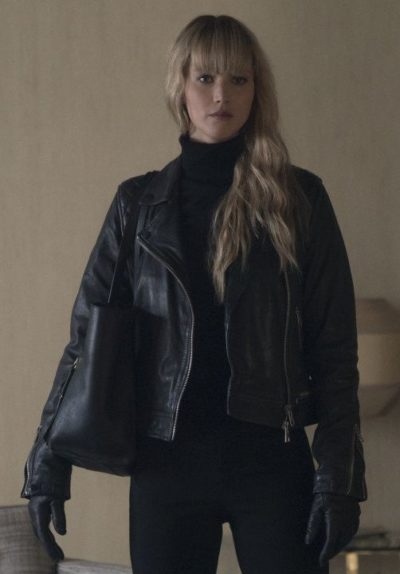 No, the main theme of the movie is the constantly shifting sands underfoot, which could easily open up at any moment and swallow the main protagonist. Some characters die during the course of the story, and it’s not necessarily the guilty ones who catch a bullet. But it’s a problem that there are hardly any sympathetic characters in the movie. Even Dominika is a big question mark, as the Russian secret service tactics force her to play a game of deception and manipulation, exactly as she was trained for. It leaves you, even at the end, guessing on which side she is/was/may have been on, in shades of Atomic Blonde. Things constantly change…
No, the main theme of the movie is the constantly shifting sands underfoot, which could easily open up at any moment and swallow the main protagonist. Some characters die during the course of the story, and it’s not necessarily the guilty ones who catch a bullet. But it’s a problem that there are hardly any sympathetic characters in the movie. Even Dominika is a big question mark, as the Russian secret service tactics force her to play a game of deception and manipulation, exactly as she was trained for. It leaves you, even at the end, guessing on which side she is/was/may have been on, in shades of Atomic Blonde. Things constantly change…
It also reminded me of Child 44 with Tom Hardy, Gary Oldman, Noomi Rapace and – hey! – Joel Edgerton. This was a serial killer story set in Stalin-era Soviet Union, in which you could constantly lose your head or fall victim to intrigue. The feeling of constant threat and danger was stronger there. But I note, “Soviet Union,” because confusingly, this movie seems to play in contemporary Russia. Which is…. quite strange: the “red sparrow” program did exist in the 1960s but may not even have survived that decade, never mind existing today. The movie adapts the first book in a trilogy by a former American agent so he presumably knows what he wrote about; it all appears very realistic.
But with modern Russia as the background? I find that a bit hard to believe. German reviewers tended to complain about old clichés, thicker than in classic James Bond movies. They may be partly right. When I saw Charlotte Rampling standing and explaining to Lawrence what her duty is, in front of the “school for whores”, I was very much reminded of Lotte Lenya as Rosa Klebb, setting Daniela Bianchini up to attract James Bond. And the Secret Service of Russia appears to come right out of the 50s/60s, not today. Much has also been made, mainly by American reviewers, about the sex/nude/violent scenes. While they are all part of the story, if you are looking at the whole of the movie – once again, 140 long minutes – it doesn’t feel as spectacular or scandalous as the articles made it. Strangely, even Lawrence seemed to play up the sex angle in interviews (also causing a minor outcry by puritans when she appeared at a premiere of the movie, showing some cleavage…). Yes, you see her nude in the movie but I can’t personally say a 3-second shot of one breast and 10 seconds on her butt would be worth the admission!
I mean. Jennifer, you know there exists something called internet pornography? You really think we men are so hormone-driven that a glimpse of your almost-naked body for a few seconds would make us buy a (not really that cheap) ticket for a 140 minute movie? Reeaalllllyyy? ;-) But then this may also be testament to a certain kind of desperation on the part of the studio: how else to sell this clunky piece of espionage fiction. What do you do when you have no big action scenes or robots from space?
There is a nasty but quick rape scene, but we saw worse in The Girl With the Dragon Tattoo movies. It has to be said, this scene seemed stolen almost 1:1 from Stoker, with Mia Wasikowska and Nicole Kidman. There are some ugly torture scenes but they are similarly brief, except for the last one. And as I hardly sympathized or identified with any of the characters, they also failed to make an emotional impact on me. I really have to say: After having explored the “Giallo” genre, I can say these kinds of movies – done almost 50 years ago – were much more terrifying when it came to violence, and more daring with regard to nudity or sex. So, I have a problem when some articles seem to celebrate Jennifer Lawrence’ dedication for “revealing so much” and “daring”. Maybe it’s shocking for today’s (female?) American cinema-goers, I don’t know. By my standards and in my opinion, it’s quite tame in all aspects.
 I do give credit to Lawrence, who never saw an acting school from the inside, and has matured – yes, even by my standards! – into a “real actress”. I personally find it very positive that a studio is willing to make a movie almost entirely focused on its story with a nice budget ($69 million) instead of the next action-SFX-extravaganza. But I have seen better. That said, for those willing to invest the time and money, the movie may actually provide something. The actors are all good – I have not mentioned Mary Louise Parker in surprise cameo in the middle of the movie), the production design is impressive (even if Film-Russia seems to have a preference for 1970’s interior design) and the James Newton Howard (Salt, btw.) score is solid as always, even though it mainly plays in the background.
I do give credit to Lawrence, who never saw an acting school from the inside, and has matured – yes, even by my standards! – into a “real actress”. I personally find it very positive that a studio is willing to make a movie almost entirely focused on its story with a nice budget ($69 million) instead of the next action-SFX-extravaganza. But I have seen better. That said, for those willing to invest the time and money, the movie may actually provide something. The actors are all good – I have not mentioned Mary Louise Parker in surprise cameo in the middle of the movie), the production design is impressive (even if Film-Russia seems to have a preference for 1970’s interior design) and the James Newton Howard (Salt, btw.) score is solid as always, even though it mainly plays in the background.
The studio’s idea behind the green light for the movie may have been to create another successful franchise. The formula? Actress Jennifer Lawrence + director Francis Lawrence + adapt a successful bestseller. It worked with the Hunger Games movies – Lawrence directed the last three – but I fear won’t be the case here. While I can imagine that the book may have been a great read for those who love a good spy story, that alone does not necessarily recommend it to become a blockbuster movie, despite some admirable achievements by the team in front and behind the camera.
For fans of Tinker, Tailor, Soldier, Spy or The Russia House, it may be worth the admission. Everyone else, can wait for the movie to become available as a rental or on TV. Honestly, I would prefer a sequel to Atomic Blonde or The Man From U.N.C.L.E. [The latter should have been so much more successful, but didn’t get the same advertising push as this new J-Law vehicle] While it’s no bad movie at all, people may be lured in based on wrong assumptions, such as thinking this is some kind of Black Widow origin story. They’ll leave disappointed, and I predict another flop in Lawrence’s career.
Dir: Francis Lawrence
Star: Jennifer Lawrence, Joel Edgerton, Matthias Schoenaerts, Jeremy Irons
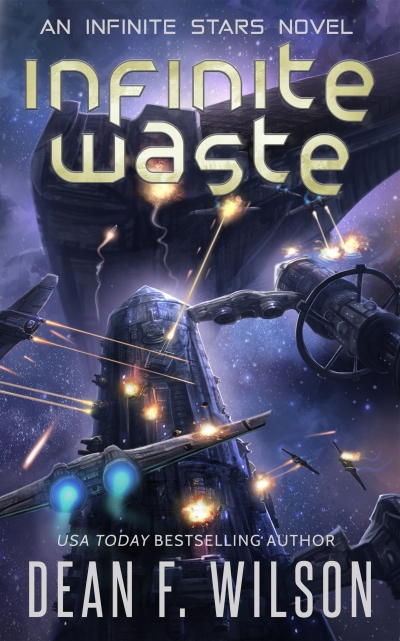 This initially seemed like a borderline entry, which I kept reading purely for entertainment. It’s about an exploratory star-ship, the Gemini, out on the very edge of known space, which comes across a giant barge, packed with nuclear waste and populated by a race of rat-humanoids, the Raetuumak. The Gemini is an appropriate name for the craft, as it’s effectively two separate ships, each with their own captain and very different approaches. Maggie Antwa, commander of Gemini Right, is a cautious scientist who abhors violence in any form, and was compelled to take on this mission after being involved in a environmentalist rebellion against the ruling Empire. Over in Gemini Left, on the other hand, Skip Sutridge is a square-jawed believer in shooting first and asking questions… well, never, to be honest. He has been sent to the fringes, probably to try and keep him out of trouble.
This initially seemed like a borderline entry, which I kept reading purely for entertainment. It’s about an exploratory star-ship, the Gemini, out on the very edge of known space, which comes across a giant barge, packed with nuclear waste and populated by a race of rat-humanoids, the Raetuumak. The Gemini is an appropriate name for the craft, as it’s effectively two separate ships, each with their own captain and very different approaches. Maggie Antwa, commander of Gemini Right, is a cautious scientist who abhors violence in any form, and was compelled to take on this mission after being involved in a environmentalist rebellion against the ruling Empire. Over in Gemini Left, on the other hand, Skip Sutridge is a square-jawed believer in shooting first and asking questions… well, never, to be honest. He has been sent to the fringes, probably to try and keep him out of trouble.




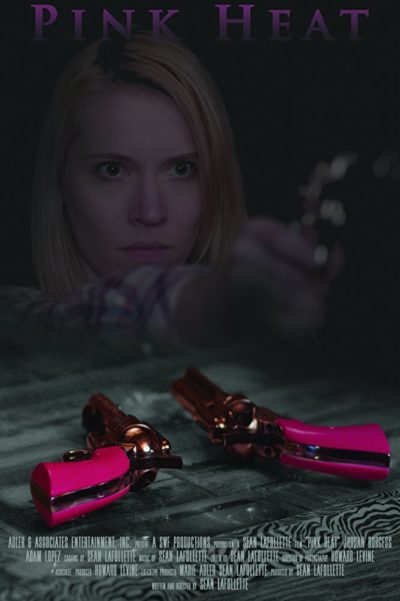 You know you’re deep into one-man, to put it mildly, film-making territory, when the same name gets 7½ of the first 10 credits (one is shared). That’s spreading your talents thin, even if you are Steven Spielberg. And Sean LaFollette definitely isn’t Spielberg. The story is told in flashback, with the heroine Elizabeth (Burgess) the proud recipient of two pink-handled revolvers for her birthday. While she’s off getting her gun-belt, the family saloon is invaded by a group of out of town criminals, who take the rest of her family hostage, and shoot her grandfather dead. Fortunately, Elizabeth takes after her late mother, who was a crack-shot, and is therefore in a good position to pick apart the perpetrators.
You know you’re deep into one-man, to put it mildly, film-making territory, when the same name gets 7½ of the first 10 credits (one is shared). That’s spreading your talents thin, even if you are Steven Spielberg. And Sean LaFollette definitely isn’t Spielberg. The story is told in flashback, with the heroine Elizabeth (Burgess) the proud recipient of two pink-handled revolvers for her birthday. While she’s off getting her gun-belt, the family saloon is invaded by a group of out of town criminals, who take the rest of her family hostage, and shoot her grandfather dead. Fortunately, Elizabeth takes after her late mother, who was a crack-shot, and is therefore in a good position to pick apart the perpetrators.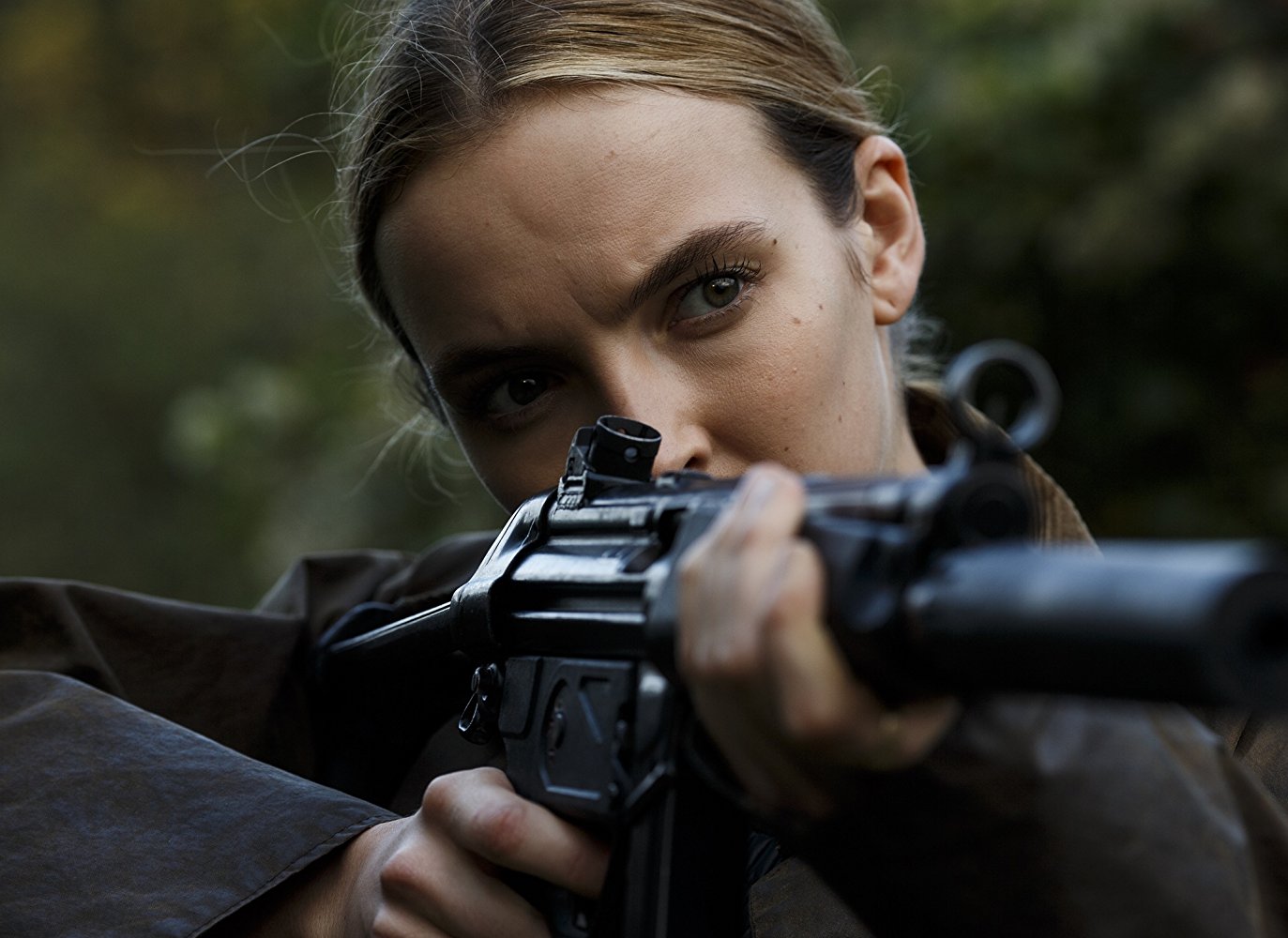 ★★★★
★★★★ A genuinely organic hit on BBC America, this generated so much word of mouth that the ratings for this show behaved in an unexpected fashion. Including those who DVR’d the show, viewership increased for each episode over its 8-week run. That’s a rare feat these days, and is testament to the show’s unique qualities. So confident were the station in the show, that is was renewed for a second season before it had even premiered – another unusual achievement. But then, this show is arguably unlike anything else on television.
A genuinely organic hit on BBC America, this generated so much word of mouth that the ratings for this show behaved in an unexpected fashion. Including those who DVR’d the show, viewership increased for each episode over its 8-week run. That’s a rare feat these days, and is testament to the show’s unique qualities. So confident were the station in the show, that is was renewed for a second season before it had even premiered – another unusual achievement. But then, this show is arguably unlike anything else on television.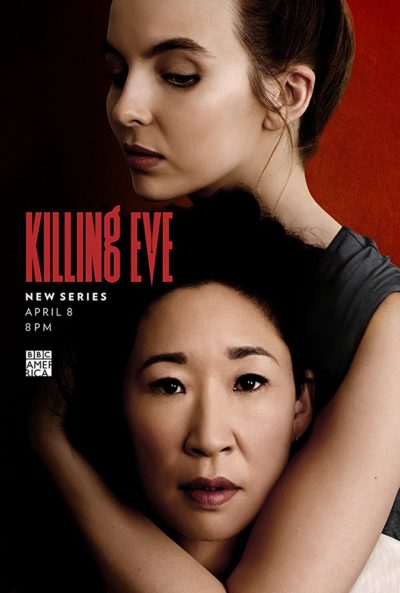 The show is defiantly messy in terms of its characters, who manage both to embody the stereotypes of the dogged law-enforcement official and the slick, femme fatale, while also subverting them. From the viewpoint of this site, Oksana is likely the more interesting. As a high concept, imagine a female version of Dexter: charming and affable on the surface, yet extraordinary lethal – and capable of flicking that switch in a moment. The difference is, Villanelle has chosen not to control and direct her “dark passenger” so much as embrace them fully, and is given the chance to do so by the profession into which she is recruited. It also allows her to indulge her fondness for haute couture.
The show is defiantly messy in terms of its characters, who manage both to embody the stereotypes of the dogged law-enforcement official and the slick, femme fatale, while also subverting them. From the viewpoint of this site, Oksana is likely the more interesting. As a high concept, imagine a female version of Dexter: charming and affable on the surface, yet extraordinary lethal – and capable of flicking that switch in a moment. The difference is, Villanelle has chosen not to control and direct her “dark passenger” so much as embrace them fully, and is given the chance to do so by the profession into which she is recruited. It also allows her to indulge her fondness for haute couture. There was a while there, where Russia dropped out of the top spot as far as being cinematic villains were concerned. No longer the “Evil Empire” of the Reagan era, they had largely been replaced, in the post 9/11 landscape, by Islamic fundamentalism. But now, those pesky Russkies are back as the bad guys once again, following their interference in the sacrosanct and solemn process of Americans electing a president. [I really must figure out a sarcasm font for this site] While this is supposedly set in the present day – I say that, because at one point, cutting-edge computer software is delivered on a set of floppy disks! – this feels more like something born out of Peak Cold War.
There was a while there, where Russia dropped out of the top spot as far as being cinematic villains were concerned. No longer the “Evil Empire” of the Reagan era, they had largely been replaced, in the post 9/11 landscape, by Islamic fundamentalism. But now, those pesky Russkies are back as the bad guys once again, following their interference in the sacrosanct and solemn process of Americans electing a president. [I really must figure out a sarcasm font for this site] While this is supposedly set in the present day – I say that, because at one point, cutting-edge computer software is delivered on a set of floppy disks! – this feels more like something born out of Peak Cold War. Not sure I’d go that far: I know it’s a great deal less
Not sure I’d go that far: I know it’s a great deal less 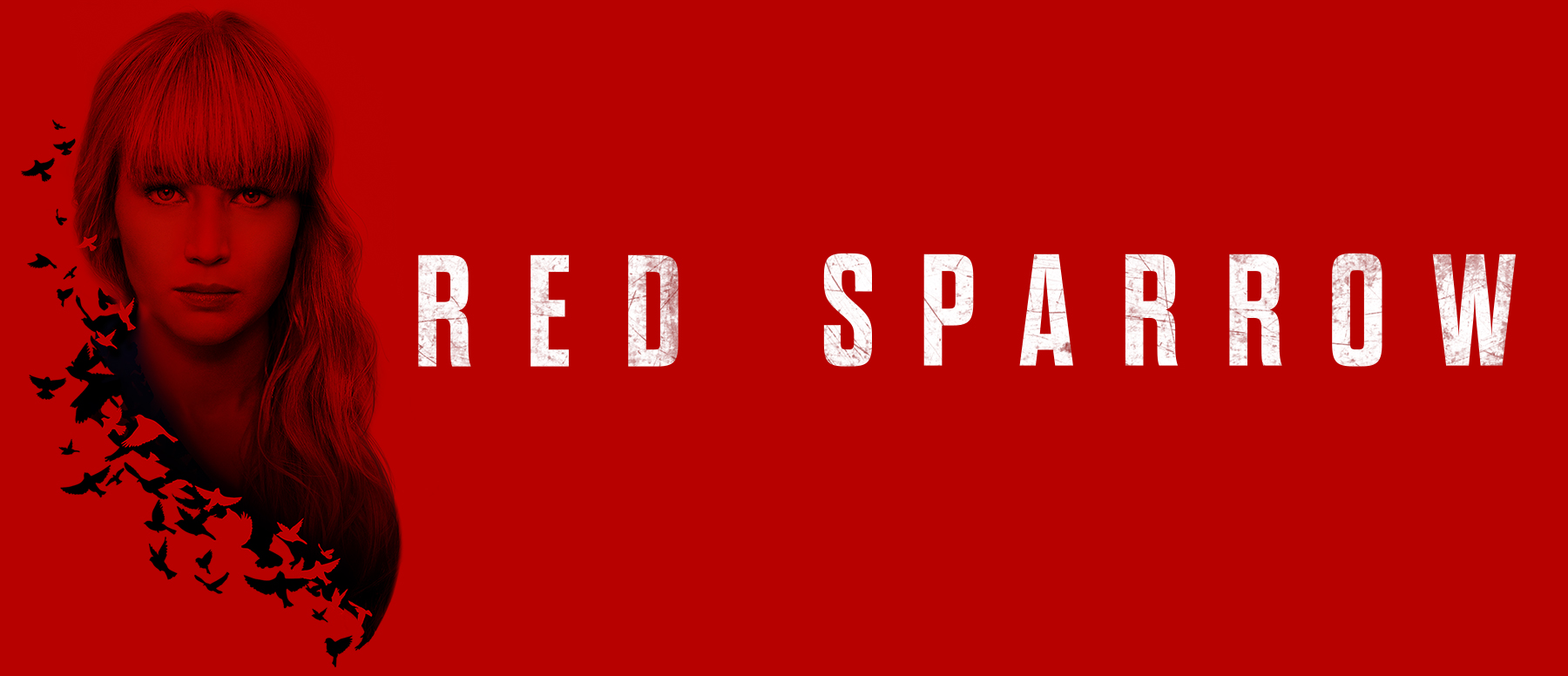
 No, the main theme of the movie is the constantly shifting sands underfoot, which could easily open up at any moment and swallow the main protagonist. Some characters die during the course of the story, and it’s not necessarily the guilty ones who catch a bullet. But it’s a problem that there are hardly any sympathetic characters in the movie. Even Dominika is a big question mark, as the Russian secret service tactics force her to play a game of deception and manipulation, exactly as she was trained for. It leaves you, even at the end, guessing on which side she is/was/may have been on, in shades of Atomic Blonde. Things constantly change…
No, the main theme of the movie is the constantly shifting sands underfoot, which could easily open up at any moment and swallow the main protagonist. Some characters die during the course of the story, and it’s not necessarily the guilty ones who catch a bullet. But it’s a problem that there are hardly any sympathetic characters in the movie. Even Dominika is a big question mark, as the Russian secret service tactics force her to play a game of deception and manipulation, exactly as she was trained for. It leaves you, even at the end, guessing on which side she is/was/may have been on, in shades of Atomic Blonde. Things constantly change… I do give credit to Lawrence, who never saw an acting school from the inside, and has matured – yes, even by my standards! – into a “real actress”. I personally find it very positive that a studio is willing to make a movie almost entirely focused on its story with a nice budget ($69 million) instead of the next action-SFX-extravaganza. But I have seen better. That said, for those willing to invest the time and money, the movie may actually provide something. The actors are all good – I have not mentioned Mary Louise Parker in surprise cameo in the middle of the movie), the production design is impressive (even if Film-Russia seems to have a preference for 1970’s interior design) and the James Newton Howard (Salt, btw.) score is solid as always, even though it mainly plays in the background.
I do give credit to Lawrence, who never saw an acting school from the inside, and has matured – yes, even by my standards! – into a “real actress”. I personally find it very positive that a studio is willing to make a movie almost entirely focused on its story with a nice budget ($69 million) instead of the next action-SFX-extravaganza. But I have seen better. That said, for those willing to invest the time and money, the movie may actually provide something. The actors are all good – I have not mentioned Mary Louise Parker in surprise cameo in the middle of the movie), the production design is impressive (even if Film-Russia seems to have a preference for 1970’s interior design) and the James Newton Howard (Salt, btw.) score is solid as always, even though it mainly plays in the background.